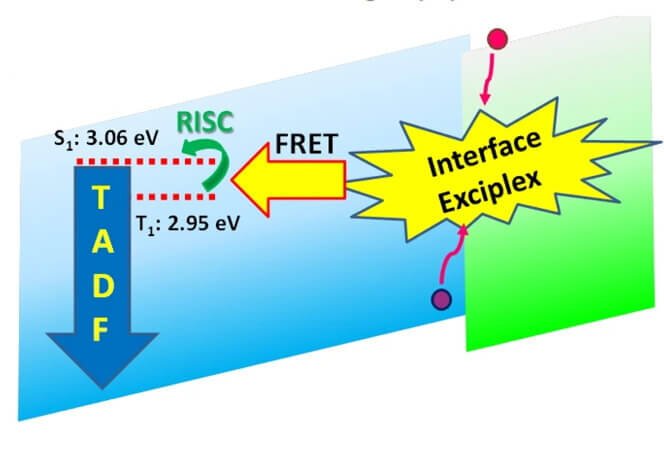High efficiency blue organic light-emitting diodes with below-bandgap electroluminescence
Vasilopoulou, M., Mohd Yusoff, A.R.b., Daboczi, M. et al.
Nat Commun 12, 4868 (2021).
doi.org/10.1038/s41467-021-25135-z
In this paper, the team designed blue OLEDs with a new Hole Transport Material (HTM). By engineering the formation of exciplex excitons at the EML/ETL interface and subsequent FRET they managed to fabricate OLEDs with high efficiencies and turn-on voltage below band-gap. The device lifetime is longer than previously reported blue OLEDs, even if degradation due to the instability of the excited host molecule (typical in TADF OLEDs) is still an issue.
Setfos was used to help extract the dipole orientation of the TADF emitter from the analysis of angle-dependent PL spectra.

